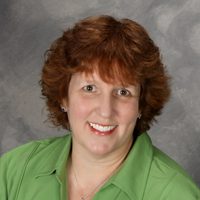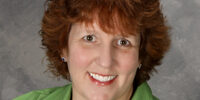Cindy Johnson, MS, MLS(ASCP)CM, ASCLS President

In this month’s column, I will focus on the face-to-face educational opportunities that many of the ASCLS constituent societies and regions provide. Virtual education sessions may be convenient, but there are definite advantages to attending a conference or symposium in person.
Face-to-face meetings allow speakers to interact with the audience, which often leads to stimulating conversation. During the opening keynote at the recent Region V Symposium, I asked the audience to break out in small groups
and answer the following question, “What is your purpose?” The energy in the room was infectious as people stood up and enthusiastically shared their responses, such as:
- Use our knowledge to better the health of our community.
- Educate other healthcare professionals about laboratory testing.
- Provide good instruction to the laboratory students I teach to ensure that they are skilled in providing correct and accurate laboratory results for good patient care.
The high energy continued throughout the two-day Region V Symposium as attendees had the chance to network and become part of a community by sharing their experiences and providing valuable insights. People place a high value on professional relationships, so networking before, during, and after educational sessions offered that opportunity. The exhibit hall was another mechanism to learn about existing and emerging technology to assist us in our daily professional lives while bonding with colleagues. Virtual meetings don’t offer the social gatherings or the same connection that face-to-face meetings do.
Personally, being in a face-to-face educational environment helps me to stay focused on the topic being presented. Technology makes it easier to multi-task, such as checking emails or text messages during virtual education sessions, which may make it more difficult to retain the information presented.
There is nothing more impactful then a speaker who can generate excitement, passion, and interest in a topic when in front of a room of attendees who draw on that speaker’s experiences. Sarah Fisher, the closing keynote speaker at the Region V Symposium, did just that as she shared Cameron’s Story—Life after the Rainbow. Cameron, her son, died in a car crash in 2018, and in one night many lives were changed as he became an organ donor. One family turned a tragedy into a story of hope and healing.
Knowledge is a powerful factor that empowers people to achieve great results. Hopefully you will attend at least one face-to-face educational meeting this year at your local, state, regional, and/or national ASCLS-sponsored event. Thank you to all who plan these educational meetings; you provide us with an excellent opportunity to expand our scientific knowledge while networking with our colleagues.
Cindy Johnson is senior director of laboratory services at CentraCare Health in St. Cloud, Minnesota.
